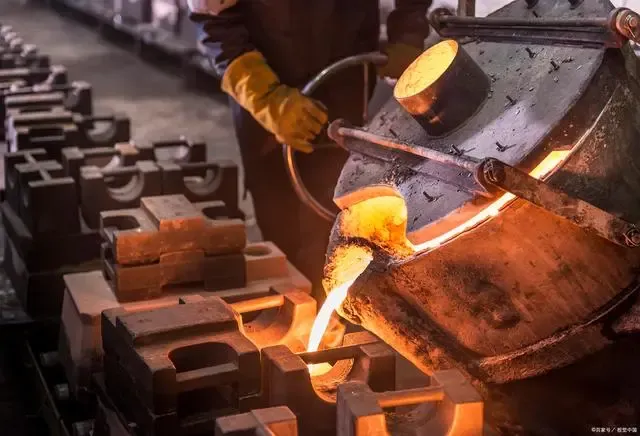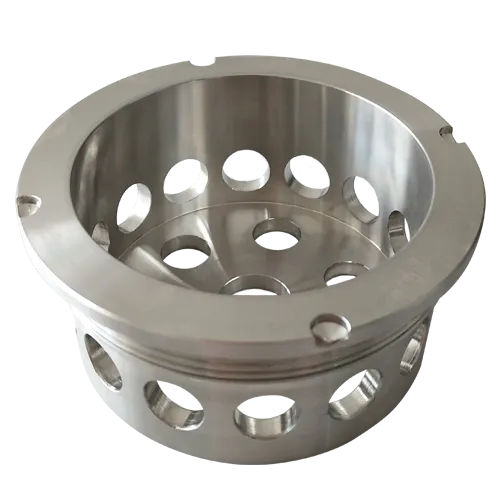Mobile:+86-311-808-126-83
Email:info@ydcastings.com
Mar . 07, 2025 02:05
Back to list
trailer air chamber
Trailer air chambers are essential components in modern transportation, ensuring that braking systems function reliably and safely. These devices convert air pressure into mechanical force, which is crucial for the effective operation of a trailer's brakes. This article delves into the intricacies of trailer air chambers, highlighting their importance, functionality, and best maintenance practices.
One of the key benefits of trailer air chambers is their reliability under various conditions. These devices are designed to withstand extreme temperatures and harsh environments, making them ideal for long-haul trucking. Their robust construction and ability to deliver consistent braking power under different load conditions make them indispensable in the trucking industry. Authoritative voices in the transportation sector emphasize the importance of using high-quality, certified trailer air chambers. Original equipment manufacturer (OEM) parts are highly recommended as they guarantee compatibility and superior performance. Industry leaders advocate for regular training of maintenance personnel, ensuring they are equipped with the latest knowledge and techniques in air chamber servicing. Trustworthiness in the product is built over time through consistent performance and adherence to safety standards. Reputable manufacturers subject their air chambers to rigorous testing processes. These tests, often conducted under simulated real-world conditions, assess the chamber's reliability and durability. Products that meet or exceed industry standards instill confidence in operators and fleet managers, knowing they are investing in a product that will contribute to the safety of their vehicles on the road. In conclusion, trailer air chambers are indispensable to the modern transportation industry. Their role in ensuring safe and efficient braking cannot be understated. For businesses relying on fleets for their operations, understanding the functionality and maintenance of trailer air chambers is not just about compliance, but also about ensuring the reliability and safety of their personnel and cargo. Emphasizing expertise, authoritativeness, and trustworthiness in their maintenance can significantly reduce risks associated with transport operations. Investing time in quality checks, knowledge updates, and using certified parts will pay dividends in operational efficiency and safety in the long run.


One of the key benefits of trailer air chambers is their reliability under various conditions. These devices are designed to withstand extreme temperatures and harsh environments, making them ideal for long-haul trucking. Their robust construction and ability to deliver consistent braking power under different load conditions make them indispensable in the trucking industry. Authoritative voices in the transportation sector emphasize the importance of using high-quality, certified trailer air chambers. Original equipment manufacturer (OEM) parts are highly recommended as they guarantee compatibility and superior performance. Industry leaders advocate for regular training of maintenance personnel, ensuring they are equipped with the latest knowledge and techniques in air chamber servicing. Trustworthiness in the product is built over time through consistent performance and adherence to safety standards. Reputable manufacturers subject their air chambers to rigorous testing processes. These tests, often conducted under simulated real-world conditions, assess the chamber's reliability and durability. Products that meet or exceed industry standards instill confidence in operators and fleet managers, knowing they are investing in a product that will contribute to the safety of their vehicles on the road. In conclusion, trailer air chambers are indispensable to the modern transportation industry. Their role in ensuring safe and efficient braking cannot be understated. For businesses relying on fleets for their operations, understanding the functionality and maintenance of trailer air chambers is not just about compliance, but also about ensuring the reliability and safety of their personnel and cargo. Emphasizing expertise, authoritativeness, and trustworthiness in their maintenance can significantly reduce risks associated with transport operations. Investing time in quality checks, knowledge updates, and using certified parts will pay dividends in operational efficiency and safety in the long run.
Latest news
-
Understanding Metal Casting TechniquesNewsApr.02,2025
-
Understanding Exhaust Manifolds for Enhanced Engine PerformanceNewsApr.02,2025
-
The World of Metal FabricationNewsApr.02,2025
-
Key Components for Pump and Turbo EfficiencyNewsApr.02,2025
-
Essential Tools for Automotive Maintenance and RepairNewsApr.02,2025
-
Durable Valve Components for Effective Water ManagementNewsApr.02,2025
Related PRODUCTS











